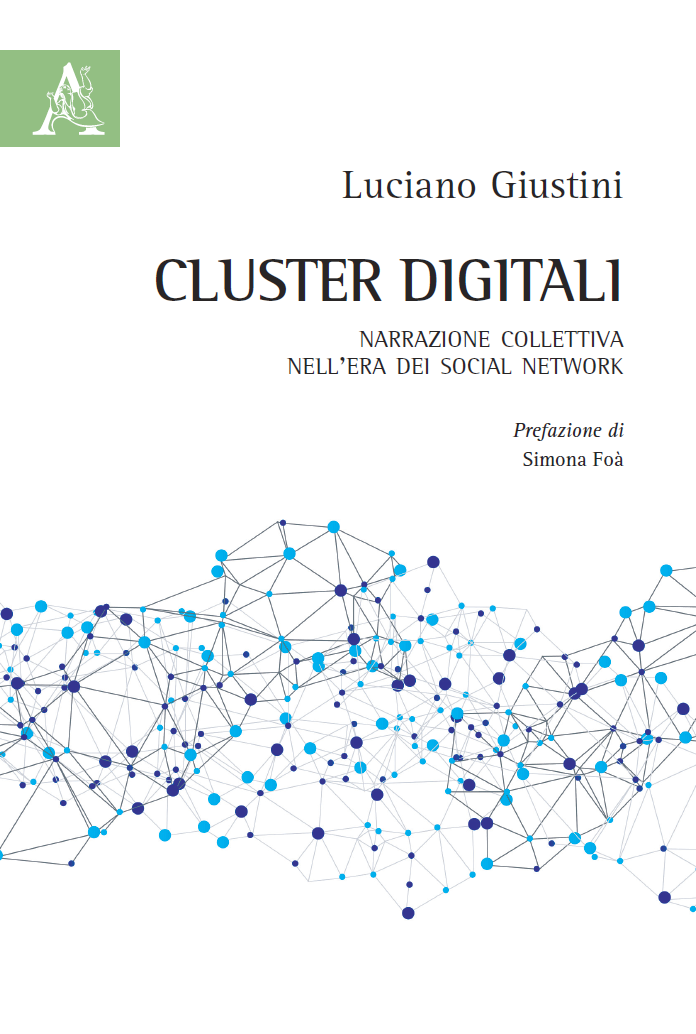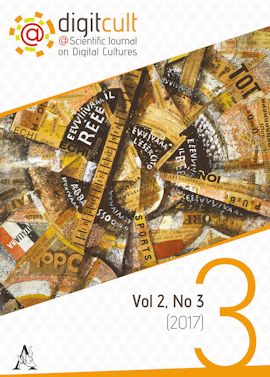On May I obtained my 2nd degree in Information Sciences, Communication and Publishing at the University of Rome Tor Vergata. There was the Computer science engineering degree, but this was the “mine” one. In this journey I found a really good and professional path on issues I’ve been following for years - Sociology of communication, but also my old passion: Psychology - and specially a great human experience, meeting extraordinary people. I’m thankful to those who had the patience to follow me with timely advices and the necessary structuring of my (so many, too many) ideas. This good mix has led to the drafting of an original work whose research object, the «Digital clusters», will write about (hopefully soon) in a separate article. It has been so an awesome experience, that probably will continue in a teaching program in this university: that’s really a great news.
Why I’m talking here about it? For a couple of reasons. The first one is to keep track in the blog, about such an important event for me. From the first post it’s exactly fifteen years (it was 2002 when I started): now and then I read what has changed around me, and how “I am changed”; the blog - in my opinion - remains the best place to fix some experiences and concepts along the path.
The second reason is to focus some of the elements from this particular experience of study. I basically found three underlying themes:
1 - Change when things don't go. After the happy experience in Nice (from 1998 to 2004), where I brought my early experiences and skills, I worked for a few years in Telecom Italia (italian main telco company), and later in a consulting and system integration company, then as a programmer in one of the most valued and productive teams I worked with in the Rome area. And yet... in that time I had the toughest crisis: at the end of 2010 I realized that Programming and Web development was no longer my way…
It was not only a cognitive problem (the stomach pains was afflicting me from a couple of years) but the fact that I was changed. From the early years of editorial debut to the period of software engineering, my interests shifted more and more to other topics. I still used the typical technical tools like Eclipse, configuring perfectly for PHP and SVN versioning, but things were getting worse every day.
So. In 2011 I decided to take a sabbatical year, trying to figure out what was wrong with me. I had a degree in the computer science field, worked as programmer, and it was very difficult to reconfigure (to use a congruent term) a professional career - although in a state of crisis. I remember how that time was horrible.
By re-reading that experience, I can say it was the more useful phase. I had to get away from a world that was no longer my own, to understand that my world was another. In the end of that year there was an event - those who change your life: Giovanna Abbiati (with whom I would later do big important things) called at my phone: she asked me if I was available to teach in the upcoming «Master in Communication and New Media» at the Athenaeum Regina Apostolorum. I already did some courses on Programming topics, but in small ambits and with few people. This was an opportunity for a “quantum leap” and to really test myself. I answered yes, with fear but also great motivation. In that ambit I discovered what I call a sort of “teaching vocation”. It was really a revolution: indeed the beginning of change. In the next years I realized a training course on Social media issues, that I knew very well as early adopter, along with the digital skills known as a technician, bringing in dowry and covering many topics in the set number of hours (pushing a little bit).
I found that the process of transferring my experience and skills to others was fatiguing but at the same time beautiful: teaching is an adventure that makes you understand more, tell you more, requires you to learn more and learn a lot from the students and colleagues. It was a leap that led to the reconfiguration of my professional career. At that time I realized that the relationship with computer science was changed: what I studied and learned needed to be reorganized to be transferred to others who would use all in different and new ways. From that experience, for example, took place the great initiative of the TEDxViadellaConciliazione in 2013, which in these days has been resurfaced for Pope Francis' talk - who in that year was just elected - at TED 2017 Vancouver (here is the video speech).
2 - Need for continuing education (especially in those times of illiteracy). When you practice a profession like engineer, or doctor, or architect, you should always keep up to date. What in ITC is obvious (technology runs in our lives), in my experience can apply to (almost) all the qualified professions. On the other side this is a very common problem, because not always is easy to attend courses (if undone by the working company, you have to pay courses by yourself, not to mention time to dedicate, topics to choose, etc.). Technological issues - as said - are strongly “under pressure” in the professions but not only there. I haven’t use the term “pressure” randomly: sometimes talking to friends working in different areas, such as psychologists and psychotherapists, or theologians, even in these fields a continuous update path has become indispensable. To remain in the example, only in the field of Psychology in the last twenty years has changed almost everything! Many of the models considered good up to the nineties, are in an undergoing deep review process - due to new findings in neuroscience and psychotherapy, and so on. It’s clear that those who studied in those years ’80-’90 are faced with a complex (and sometimes unqualified) recalculation path in their life - without mention the dozens of different models and schools. The same concept can be extended to other professions.
Now, imagine what’s like when you needs to teach, in one, or - as my case - in contiguous disciplines and fields: professional updating should be continuous and as much diversified as possible. I realized this lesson: if I wanted to be a “good teacher” I had to fill several gaps in human sciences and to connect different fields. As engineer I was covered by the technical side, and with the magazine experience I dealt with issues about communication and publishing. But, the more I deepened these issues, the more I realized I needed an upgrade, not only based on personal readings. In late 2014 I decided to start a new study, which led me to choose the Tor Vergata Philosophy and Literature university ─ after selecting the two other public Rome’s universities ─ as the most appropriate to what I was looking for.
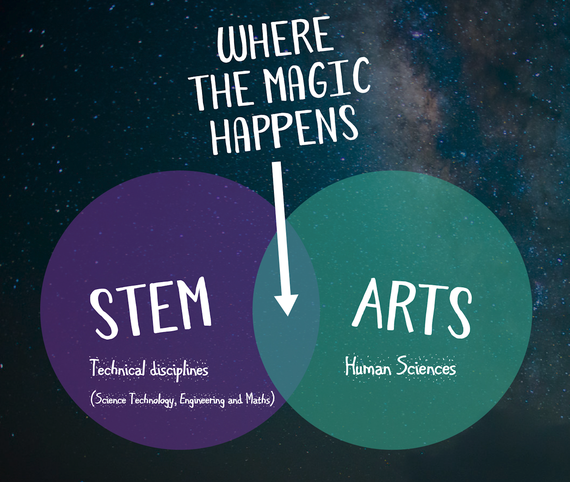
It was the right choice: there I found very special people, starting with my tutor who cut out a “tailor-made” plan of studies for me, revealing optimal, and my supervisor, who dealt with me structuring my research at the moment I was still clearing it to myself.
From this adventure I took at least two important lessons: without a broad-spectrum culture, which joins both technical side (in my case the hard sciences) and human one, you can’t be a good teacher, nor a coach or a trainer. Among other things, I’ve observed how important can be the process of cultural deepening to read the complex reality that surrounds us - in terms of politics, narration, psychology, and all data about social networks. I found that the so-called “digital illiteracy” (which needs, however, always a specification) and cultural illiteracy in general are creating a situation, in most cases, dramatic, and not only in the “less-developed” nations or in western ones. There is a lot, lot to do.
3 - The Dynamics of Social networks. I could start with the "fanaticism runs over the net" - I think it's an experience everyone has met in online discussion. However, today's situation has become very complicated. Precisely on recent years, my research has focused on the distorting dynamics of digital processes, highlighted by social networks. There is religious and historical fanaticism, political fanaticism, social, and in general, an ideological narrative that lives in pseudo-truth, from several decades. But it’s only when these ideologies meet the social networks’ dynamics that the structure changes and grows dramatically: the distorting narratives are amplified and reinforced in ways that make the leap enormously extended to amounts of people previously confined to small communities - for example misinformed, or not wanting to broaden their viewpoints. Small groups of persons sharing an even wrong point of view, in little places, isn’t alarming but simply natural.
But. For a few years now (generally dating from 2009-2010, the spreading era of Social media) hundreds of thousands - and millions - of individuals share common narratives in a diffusive model in thousands of online groups and social pages, where algorithms have a preponderant part. Algorithms try to comprehend users’ preferences, and the filtering models act by showing what is considered “liked” by the user - often not wrong. The effect is a kind of loop: people make choices, and select first sources and content to search for specific topics, that confirm beliefs and preconceptions (including cognitive bias and so on), algorithms begin to filter content by presenting more and more of that kind of content.
Starting with the “filter-bubble”, identified in 2011 by Eli Pariser, from the customization of Google's search results, it has been clear that the distortion phenomenon became so large that it produces an even more alarming effect: the conversational model is deteriorating, in such a quick way that’s making people less able to confront and dialogue, but rather more closed and refractory. We’re no more talking about “digital bubbles” as in the past, but as “armored cells” (Luciano Floridi). This is a process especially known to communication experts, but it went up to forefront in Donald Trump's US elections, as for the term “fake news” used sparsely. The problem of misinformation and false news has been focused in a couple of huge researches released in recent months (mainly the Anatomy of news consumption on Facebook, published on PNAS at the beginning of 2017), showing as the primary consequence of the distortion process the extreme polarization on specific topics. Continuing in this research field, I observed something else, that makes this model very aggregative, triggering a disagreement between experience and reality (where narrative and narration are common elements) that produces glaring effects: elections are the more noticeable example, but prodromes are visible already in many places of the social networks.
These three themes have made more "clear" my study path, by properly deepening the fields of communication, sociology, psychology and history. When you teach, you must first learn: it’s trivial, but you can decline it in a variety of ways. As an example, I learned (and I'm still learning) to think in a scientific way, that it is neither easy nor obvious. An historian can distort the truth, if he renounces to deepen the facts to "make right the counts". So, when writing scientific papers - or at least in a certain level of rigor - you’ve to get used to demonstrate everything you claim, link to the facts and to arguments, debates and ideas, and even to put them into question, if necessary.
Today, this is perhaps one of the crucial points of many interpretative criticisms: in such a rich contextual information, to distinguish things with the due time and level of deepening is a challenge for everyone: there is an right-false process (of probability) where the user is constantly subjected to a “fatigue of refinement and selection”; it’s difficult even for the “experts”. It’s a mix of intuition and ability and is complicated, realistically, for most people to understand where the opinions or fake news (often spread in beautiful mail) stop, and where the "nude fact" begins. I could also quote the Rashomon effect, where four direct observers of a fact report four different versions of it.
The risk is to rely on third part institutions (from digital platforms to government sources) to decide what to read, see, and search - in a selection process that inevitably can’t be transparent, cannot show the “unknown unknowns”: the things we’re not seeing (concept made famous by Donald Rumsfeld in 2002).
So a new challenge begins. That will start from putting hands on the work done, for the necessary corrections and improvements so that the book can spread with a better certainty. Afterwards, thinking about a training program on the above topics. It will be a challenging commitment, but working with people with whom there is a beautiful feeling and a profitable ideas combination, is very rare in my experience. During these months I’ve worked not only improving the ability to select, connect things, and write them correctly (especially less narratively), but I had to “invent” a method to achieve the goals I set out, and apply them! To complete the project alone, but not "alone", thanks to the precious and patient help of the people I've been lucky to meet on the road.
In short: I thought I would stop, and instead there’re so many things to do now. In the Self-management course at my Athaeneum I will need some advice, probably. :-)
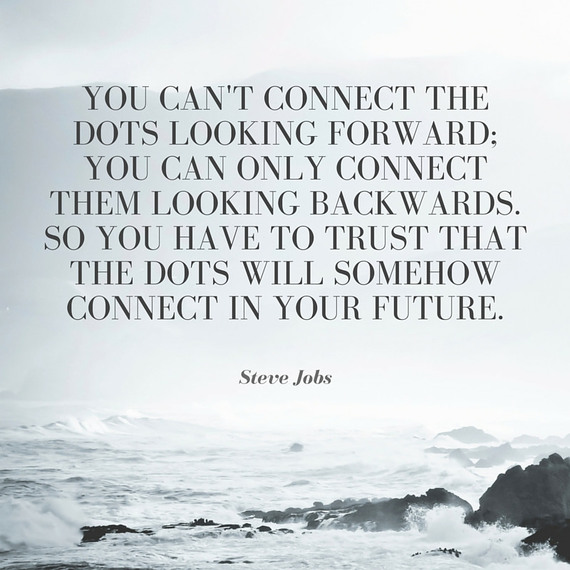




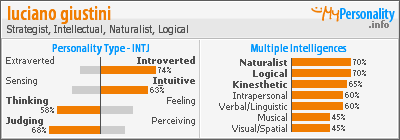
 I
I 






